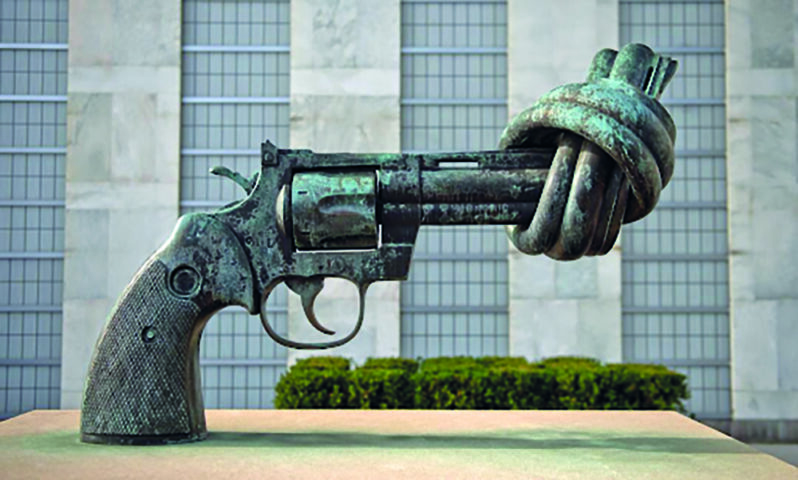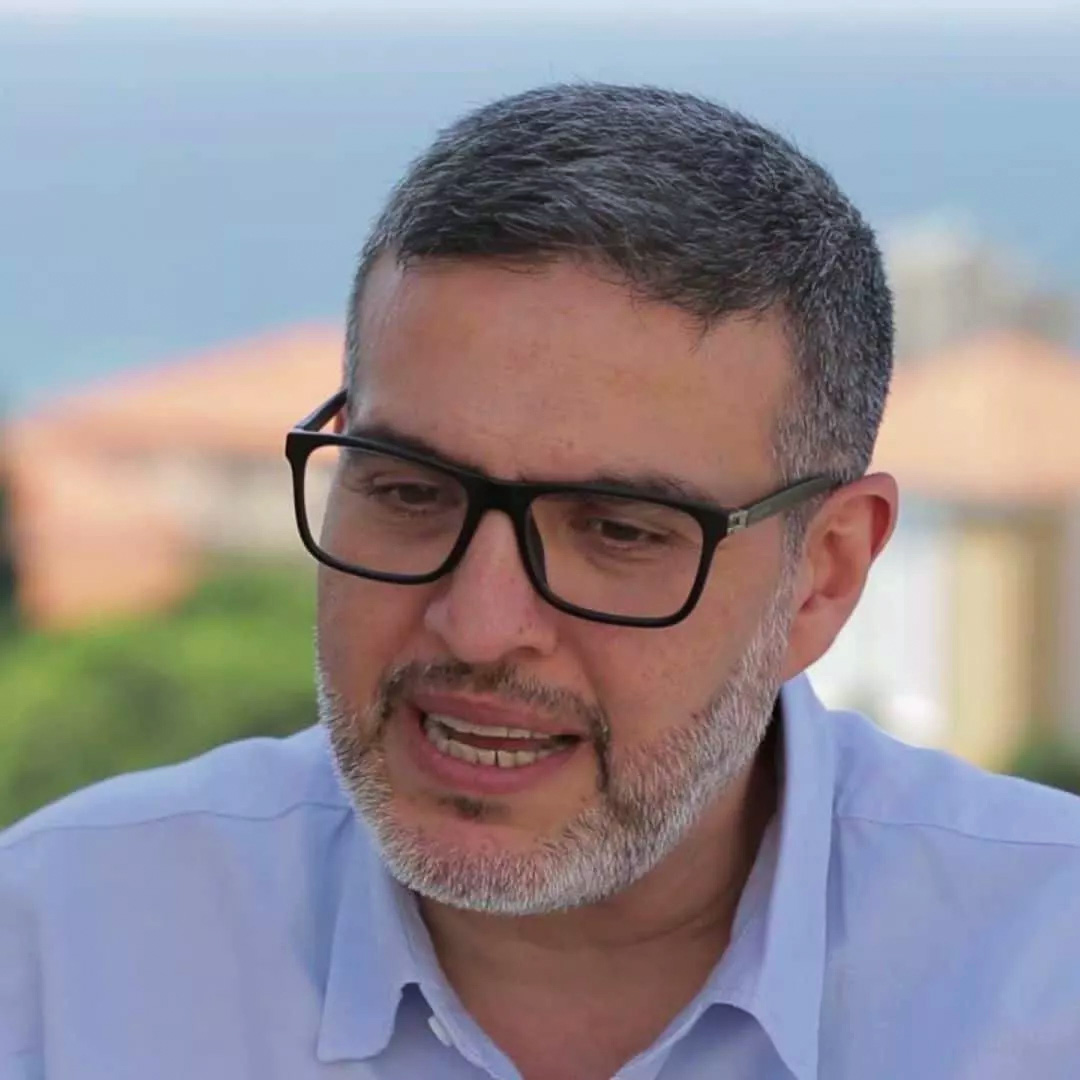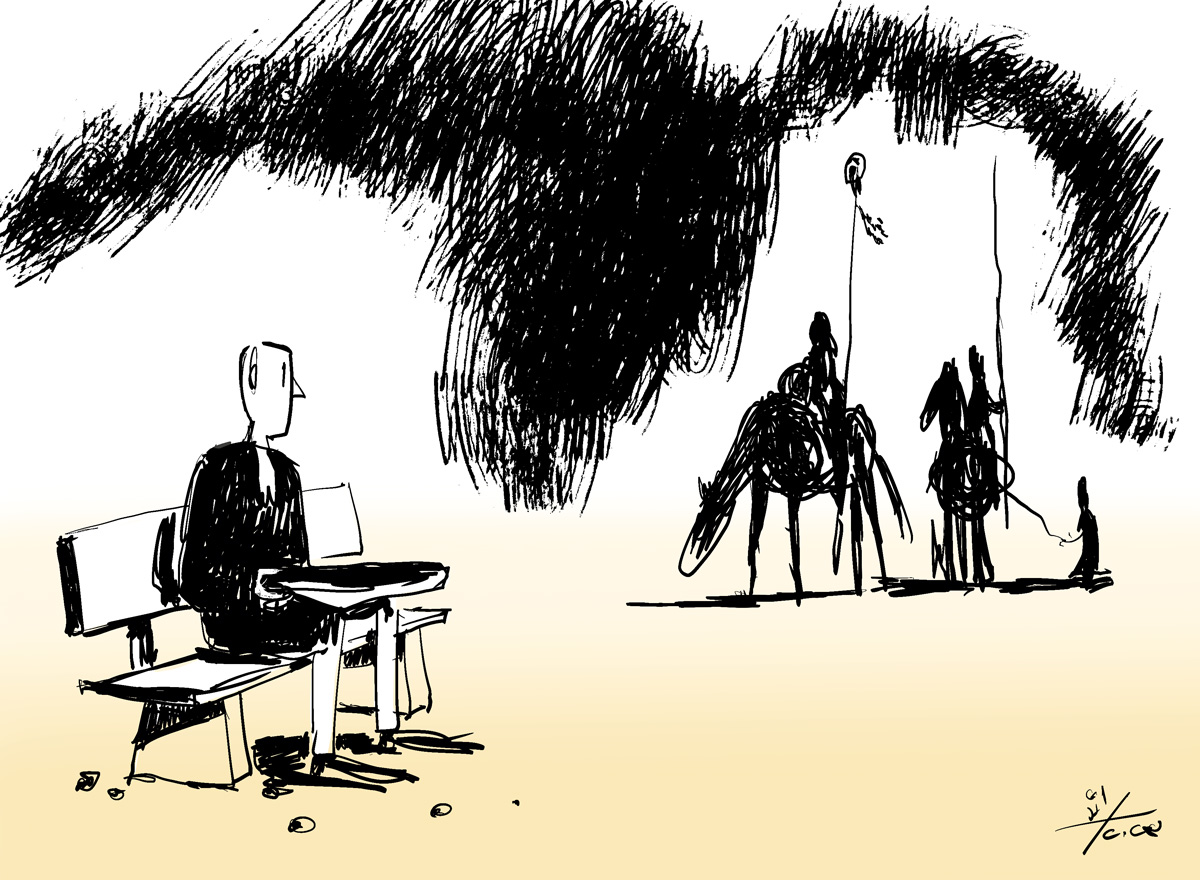Communities of South Lebanon: Our Land is Our Home

At the break of dawn on 24 November 2023 – the beginning of the “humanitarian truce” in Gaza – Nassif Mawasi drove from Mount Lebanon’s town of Bourjein, where he had fled after Oct 7, to Aitaroun, his town in South Lebanon. His children had spent the previous evening packing their belongings. “We shouldn’t waste time in the morning. We want to go to the village immediately,” they told their mother, who was also excited to return to their home in the Qadas area, to the right of the road and opposite the site of al-Malikiyah, the location of one of the Israeli occupation’s army fortifications. The inhabitants of Aitaroun say that the neighborhood’s name is derived from “al-Quds”, Jerusalem’s Arabic name, as the dirt road on which they once journeyed toward the city passes through it. Although Qadas is today severed from its namesake by a barbed-wire fence, the people still walk the road up to the wire just to preserve the memory of a bygone time and oppose the occupation. There Nassif chose to live, and there his children grew up, despite the ever-present enemy tank with its cannon aimed past their house at Aitaroun.
In Qadas, Hussein, Nassif’s middle child, rushed into the livestock barn and began kissing and embracing the calf, overjoyed that she was still alive. Nassif had been forced to leave his livestock as his house lies approximately a thousand meters away from the site of the occupation forces, which are always on alert. After they targeted civilians and journalists, he feared for his family. They refused to leave without him, especially as approximately 50 homes in Aitaroun had already been damaged by the bombing since October 8. Having lived through the horrors of the 2006 Israeli war on Lebanon when he had just one child, he did not want to risk his three children’s lives today.
Nassif is also concerned about the winter farming season. He stocks up on supplies using approximately 50 dunams of land belonging to neighbors living abroad, which he plants with unirrigated organic vegetables. He sells only the tomato paste that his wife makes: “I don’t usually sell [produce]. The excess from the vegetable farming I distribute”. He is content to sell just the produce from his cattle and sheep, along with the approximately 1,000 kilograms of tobacco that he delivers to the state-owned tobacco company each year. “I have my pension as a retired soldier,” he adds. The only agricultural activity that he avoids is poultry farming, because of the “packs of foxes that move between Palestine and Lebanon”. “There are many foxes,” he says, “and the poor things have younglings. I put food out for them and take care of them”.
When Nassif talks about his livelihood and the life he loves, his expression changes. He looks around with contentment and says, “I don’t want anything more – just my family, my house, my livelihood, and this land here in Qadas”. When he utters “Qadas”, he turns his gaze toward the occupation’s position in al-Malikiyah and says, “I just want them to go away. I won’t flee again unless all hell breaks loose”. That is exactly what happened on the morning of December 1, when Israel, as the truce ended, showered the surrounding area with rockets, prompting most of the families that had returned during the truce to leave once more.
Beyond an Emotional Attachment to the South
Between the beginning of the November 24 humanitarian truce agreed upon in Gaza, which automatically applied to Lebanon, until it ended at 7 AM on December 1, thousands of southerners returned to their villages in a sight suggesting that their relationship with the land transcends a typical emotional attachment. Their eagerness revealed the depth of this relationship, which lies at the heart of their lives and practices.
Here in the south, even in the area directly adjacent to Palestine and classified as a flashpoint, the people were returning more to the land than to the houses. Some – such as Mariam Ayyoub – tried, atop Maroun al-Ras and within a stone’s throw of the Avivim settlement in occupied Galilee, to gather the olives that the bombing had not felled. The farmers worked to make up for the plowing they had missed, using mules and bulls when they failed to find a tractor not already booked out. They took out their parents and grandparents’ primitive tools and put them to use, anticipating that the offensive might resume. That is exactly what happened as soon as the truce ended.
The further we get away from the urbanized coast and into the deep countryside, the more common poultry, livestock, and especially cultivation becomes. A southern woman leaves no strip of soil in front of her house uncultivated, planting parsley, lettuce, mint, basil, oregano, and perhaps an olive tree to supply the home. She might plant a lemon tree in the corner of the house. “Our land is generous, and a little goes a long way,” says Khadija, a woman in her sixties who returned during the truce. “Believe me,” she says, “I was certainly worried about the house, but I also feared that the chickens and plants would die in my absence”. She left because her son’s children refused to leave her by herself. She decided to accompany them “against [her] will”, as her town of Aita al-Shaab – which borders Palestine – is one of the most dangerous demarcation lines and is heavily targeted. Before leaving, she put her house key in elderly Fatima’s home: “There are people who stay in the village who don’t have anywhere to go. And there are people who stay in order not to leave Aita al-Shaab. In wartime, you don’t know what will happen. All our houses must remain open”.
War Opens All Houses
Fatima refuses to leave her home based on her experience in the 2006 offensive: “Those who leave their house, my girl, suffer”. On a table in the middle of her house sits a straw basket filled with house keys. She says that the shops close and “you don’t even see a car or person after 3 PM”. However, the people who leave think of those who hold out in the town. “The houses are full of supplies – oil, sugar, rice, lentils, hummus, gas, flour. And they charge their phones and heat water with solar power [in the vacated homes]. This helps the people who stay not to go hungry,” she explains.
The spirit of wartime cooperation is not limited to Aita al-Shaab. A group of young men who remained in their town of Ramyah laugh when we ask them whether the people who fled left their keys for those who stayed. “We don’t have any baskets of keys. But nobody leaves before telling his neighbors where he has put his keys. And some people leave the window in the kitchen door open. You go in if you need something”. On the heels of their laughter, the men tell an amusing anecdote of a beekeeper who stayed in the town so as not to lose his 50 beehives. Before the truce, his friends invited him by phone to dinner – “We’re waiting for you. You’d better come. We want to eat dinner together” – only to discover that they had slaughtered one of his chickens and grilled it. Taking a chicken from a house is a common practice in wartime, when nothing remains private property. “What can we do?” says the beekeeper, “All of us do what the young guys did. When the people return, those who stayed tell them what they took and offer to pay for it, but nobody accepts the payment”. Only the owners of stores and supermarkets collect money for the products that disappear during war, when people under siege open them up and stock up on what they need.
Heroic or Compelled?
Anyone visiting the southern border villages during the truce cannot feel completely safe, as is evident from the absence of traffic along the border from Naqoura in the far south to Kfarchouba and Shebaa in Arkoub. Along the border – which in some places lies just 500 meters, as the crow flies, from the Israeli-occupied positions and in other places, such as Kfar Kila, skirts the border fence – we pass shops and homes damaged by the bombardment. The sound of drones haunts travelers and residents day and night. Southerners are accustomed to the sound of the “MK” reconnaissance aircraft, which was common before drones stole the limelight. However, visitors to the south today cannot be nonchalant amidst the aircraft’s constant whine as it could, in a moment of aggressive madness, target people passing by with its rockets.
When you are on your way to check in on the people who returned during the truce, you expect to find the towns situated right on the border – including Maroun al-Ras – deserted. Maroun, as nearby villagers call it, gained symbolism during the 2006 offensive for the fierce battles waged at its foot on the border strip and atop its hills when the ground invasion began. Not all Maroun’s inhabitants evacuated in 2006, even though the Israeli occupation army took positions in some of the houses on its outskirts. However, the residents know well that the town is liable to be among the first targeted heavily if the Israeli offensive escalates. There in Maroun al-Ras, in an old stone house, retired schoolteacher Hussein Alawiya remains with his wife and two daughters.
In the house, you will find Hussein’s wife, Um Mustafa, picking fruit from their fig tree. “This fig tree we call hibernal,” she remarks as she serves us figs. She says that she continued picking figs even at the height of the bombardment: “I look at the aircraft that is constantly above Maroun, and I go down to the garden”. The woman, who is in her sixties, says that she is not afraid: “We don’t want to flee. That’s what my husband, our daughters, and I decided”. Rana, her daughter, works as a nurse in the Bint Jbeil public hospital: “She can’t leave the hospital. She decided to continue working because it’s essential that she stays with them at this critical time”. At 7 AM every day, Rana drives from Maroun al-Ras with the drone overhead. She returns at 3 PM, the drone still roaming above, and carrying supplies from Bint Jbeil for her family and the few other locals remaining. Um Mustafa summarizes Rana’s journey by saying, “My daughter has a strong heart. She doesn’t fear”.
Hussein takes us on a tour of the stone house, which he inherited from his parents. He loves the home and insisted on restoring it even though it was severely damaged in the 2006 offensive. He points to a room with stone walls at least 40 cm thick: “In this room, 11 occupying Israeli soldiers were killed during the battle to defend Maroun”. He insisted on restoring the room “as a reminder of the resistant town’s history and a symbol of honor and heroism”.
“But what about the current war and the bombardment encircling Maroun while you’re at the heart of it?” we ask Hussein. He finds his answer in the question itself: “You said we’re at the heart of the town. The bombing is on the outskirts”. Yet we passed a home severely damaged by bombing at the entrance of his neighborhood. “Of course, there is heavy bombing, and rockets come and go overhead. But we decided not to flee. I believe that not all Maroun’s people should leave”. He explains that the evacuation of villages makes it easier to target them: “Once we leave our homes, it becomes easier for them to bomb them. That’s why we shouldn’t all leave – only those with children”.
Hussein does not remain confined in his home, even at the height of the offensive. “When Maroun gets bombed at night, as most often occurs, in the morning I go to check the homes to see what was damaged. People always call to check on us, their homes, and the people who stayed in Maroun”. He says that he takes one precaution: “I don’t move about by car lest they target me”.
On the edge of Maroun overlooking Palestinian Galilee, a woman in her forties has just returned from Bint Jbeil. “Here I have brought supplies. I won’t flee, even if the truce isn’t renewed,” she says when we marvel at the fact that she stayed by herself on the outskirts of Maroun, no more than 2,000 meters as the crow flies from the Israeli occupation’s positions.
The woman, who would like to remain anonymous, says, “A person becomes undignified if he leaves his house. I can’t afford to rent an apartment because the prices are now in the hundreds of dollars. Where would I get dollars?” She adds, “I believe that nobody dies until it’s his time to go. I’m afraid of the bombing. But I say, go to sleep woman; that way, you won’t be conscious if something happens to you”.
Hamida Ali Bassam, a woman in her 70s who remained in Aynata, is in a similar situation. “I hear nothing but dogs barking in the valley and the sound of rockets at night on the hills, and I’m scared. I won’t say I’m not scared”, she tells us. When we ask her why she did not leave, she explains: “In July 2006, I didn’t leave until the 23rd day of the offensive. When I left, I got very tired and suffered, and I returned to find my house destroyed. Today, I’m not fleeing. I don’t have money, and I don’t want to suffer in the schools because there’s no aid there to help the people live. Anyone who wants to leave must have [money]”. All the nearby homes have been deserted. Amidst the current offensive, she no longer loves the night: “I fear that something will happen, and I’ll be forced to flee by myself during the night. If I go outside my house, I’m afraid of monsters and stray dogs, besides the bombing. If I am wounded or even die, there is nobody here to report it”. Hence, she spends her nights “sitting with arms folded” waiting for the morning: “At first light, I just go get bread”. She eats some of the lentils and bulgur she has left and says, “The hard times will pass, God willing”.
Hamida’s mind wanders as though she is reflecting on her life. “I’ve already lived most of my life,” she says before asking permission to leave for the valley, “Let me go and gather firewood. In case I get cut off from the gas, I will put the teapot on the fire”.
Livelihood as Life
With Zahra al-Jammal, who stayed in Aynata with her family and disabled husband, the conversation changes. The woman, who is at the end of her fifties, seems strong and optimistic despite everything, remaining logical and pragmatic. “Where would I go when I have nine cows from which I live and sustain my family? Where would I take [my husband] when he is sick and disabled?”. The Aqaba neighborhood in the heights of Aynata has been deserted. “Yes, the bombardment is happening around us, and we watch it,” she says. Israel has bombed Aynata and neighboring Aitaroun, with the former witnessing a significant exodus after the children Taleen, Rimas, and Layan Shour were killed, along with their grandmother Samira Ayoub. “But we won’t leave our house and livelihood. The word ‘flight’ isn’t spoken, even during war,” says Zahra. Her husband smiles, content with her stance, and says, “We won’t flee. I’m not getting off this bed. We’ll either live in our house with our dignity or we’ll die in it”.
Zahra says that she, like all southerners, depends on her supplies: “I stock up on lentils, boil wheat, and grind burghul and flour. Anything you need, you can find. And we live off these cows. We can sell them to the merchants, who are exploiting the situation to get them at one third of their price, or we can keep them”. She falls silent for a moment and then quietly adds, “This is a life’s work, and this is our life. Two days ago, I sold two cows so we would have money to spend, because we’re throwing away milk and feeding the cows half meals. But we won’t flee and throw our livelihood and life away”. As we leave Zahra’s home, she waves from the door. “If we come out of this alright, then come and visit us. If we die, then ask God to have mercy on us. But we’re not going to leave,” she says, still smiling.



